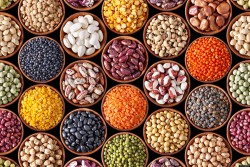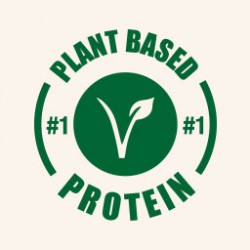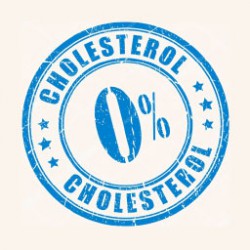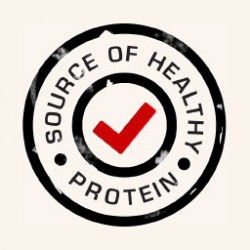0% - Gluten
0% - Sodium
0% - Chemicals
0% - Cholesterol
Magnesium, Iron
Potassium, Calcium
Fiber, Protein, Rutin
Phosphorus, Copper
Source of healthy protein
Home » Source of healthy protein
Looking forward to seeing you!
Buckwheat Protein's Unique Health-Promoting Properties
- The specific characteristics of buckwheat proteins, and the relative proportions of its amino acids, make buckwheat the unsurpassed cholesterol-lowering food studied to date.
- Its plant-based protein characteristics also enhance buckwheat's ability to reduce and stabilize blood sugar levels following meals—a key factor in preventing diabetes and obesity.
- Like the widely prescribed "ACE" hypertension drugs, buckwheat proteins reduce the activity of angiotensin converting enzyme (ACE), thereby reducing hypertension.

High content of protein
Buckwheat is high plant-based protein food having all eight essential amino acids such as lysine. Proteins are vital for various functions to be carried out in the body.
Complete protein food replaces the need to consume red meat. It also assists to lose weight with the satisfaction of appetite and replace the essential for empty carbohydrates. It provides extra energy and studies have shown that it helps to promote cognitive ability. It also assist to slow down natural decrease in strength and mass of muscle known as sarcopenia. Studies shows that complete proteins assist in slow down the loss of bones and muscle mass, lends strength, durability as well as endurance during physical activity.

Amino acids for a complete protein
Amino acids are organic compounds made up of carbon, hydrogen, oxygen and nitrogen. They are present in our body in the form of proteins and are the second largest component of our muscles and tissues.
Amino acids are also famously referred to as building blocks of our body. They are a carrier of neurotransmissions in our body, peptide bonding, catabolism, and biosynthesis.
There are nine amino acids in our body; they are Tryptophan, Threonine, Isoleucine, Leucine, Lysine, Methionine, Phenylalanine, Valine and Histidine.
Any food item that contains all these amino acids in right, quantities is called a complete plant-based protein.
Very few food ingredients have all the nine amino acids and buckwheat is one of them. It has all these nine amino acids and is an especially rich source of Lysine which is not an abundant amino acid in most of the other grains.
Wrap Up: Buckwheat contains all the nine amino acids required by our bodies. In this sense it is called the complete protein. Since most of our protein needs are met by meat which is also high on fats, buckwheat makes for a great alternative source of proteins for non-vegetarians and substitute for vegeterians.

A Unique Nutrient Profile
Buckwheat’s unique nutrient profile makes it a step above grains. Grains such as wheat, maize, and rice do not provide the human body with the proportionate balance of amino acids required to produce complete protein because of an insufficient supply of the amino acid lysine.4
Buckwheat, on the other hand, contains all eight essential amino acids in excellent proportions—including a good supply of lysine. Because of that, buckwheat is a surprisingly rich source of protein. In fact, just one cup of buckwheat delivers 23 grams of high-quality protein

Eat Protein for Immunity
If you’re looking to add more protein to your diet, buckwheat is the answer. It has more protein than rice, wheat and corn. It also contains amino acids arginine and lysine that are not usually found in grains. These help to boost your body’s immunity, so it’s great for keeping winter flu at bay! And this protein is plant-based!

Provides Highly Digestible Protein
Buckwheat nutrition is a great source of plant-based protein and contains twelve amino acids — the “building blocks of protein” that support energy, growth and muscle synthesis. In fact, buckwheat has more protein than any form of rice, wheat, millet or corn. Buckwheat grains contains roughly 11-14 grams of protein for every 100 grams, which isn’t as high as quinoa or beans and legumes, but is higher than most whole grains.






















